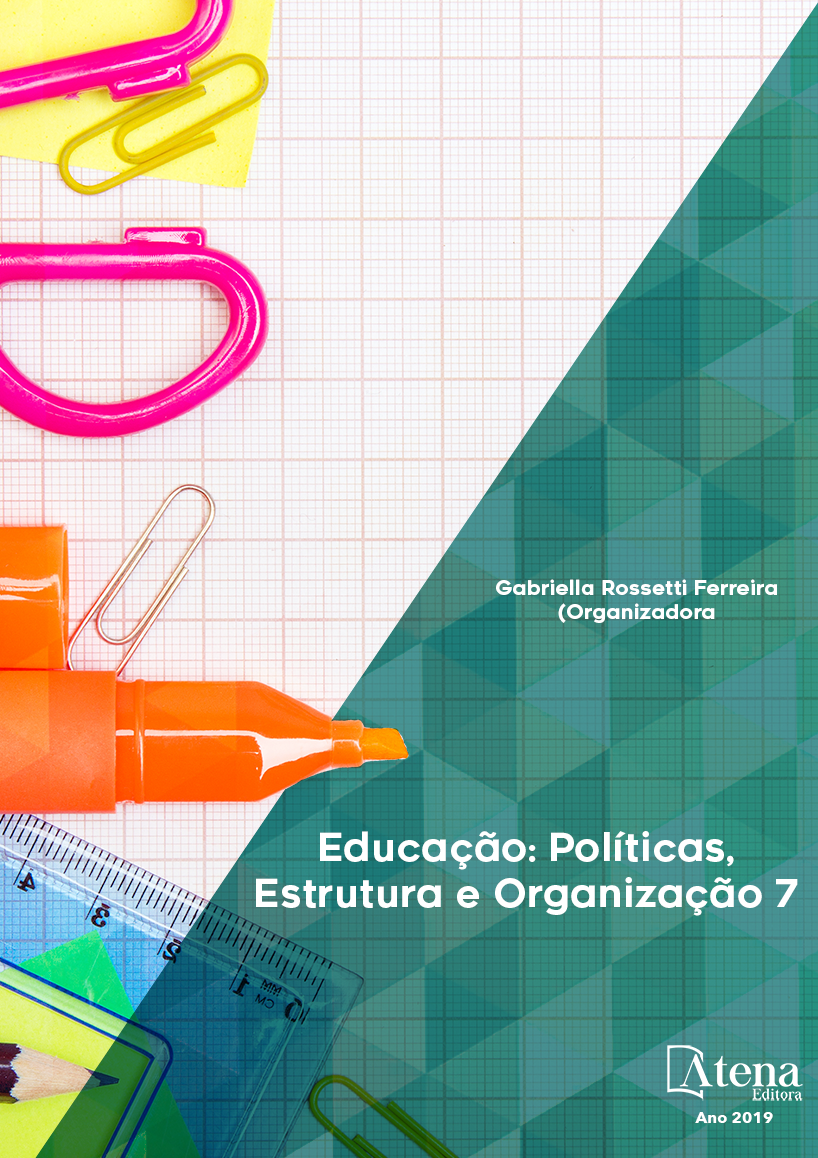
FRACTAIS COMO EIXO INTEGRADOR ENTRE AS DISCIPLINAS DE QUÍMICA E ARTES
O presente trabalho discute sobre
o uso de fractais como eixo integrador das
disciplinas de Química e Artes, bem como
o desenvolvimento de ambiente favorável à
aprendizagem significativa a partir de uma
pratica pedagógica construída em uma
perspectiva interdisciplinar. A experiência aqui
compartilhada ocorreu com alunos do 1º. ano
do Ensino Médio de uma escola pública no
interior de Pernambuco. Os experimentos
didáticos realizados ao longo do trabalho
pedagógico foram desenvolvidos com itens
comuns do cotidiano dos estudantes como:
corante, leite e detergente para pratos. Por
meio desses experimentos, os professores
buscavam proporcionar aos alunos a ampliação
do pensamento e da capacidade de reflexão
crítica sobre acontecimentos cotidianos, como
o fenômeno da tensão superficial dos líquidos e
arte fractal, a partir da integração de conceitos
trabalhados nas duas disciplinas envolvidas.
Durante o desenvolvimento da proposta,
observou-se a criação de um ambiente
estimulador para a aprendizagem onde os
discentes puderam explorar e averiguar
problemas provenientes de situações práticas
do seu cotidiano, relacionando-as com conceitos
discutidos em sala de aula, o que favoreceu o
alcance do objetivo inicial dos professores.
Ademais, a realização desse trabalho
pedagógico contribuiu para o desenvolvimento,
entre os discentes, de características e posturas
relacionadas à autonomia, criatividade, trabalho
em equipe, pensamento científico, reflexivo e
investigativo.
FRACTAIS COMO EIXO INTEGRADOR ENTRE AS DISCIPLINAS DE QUÍMICA E ARTES
-
DOI: 10.22533/at.ed.08819030427
-
Palavras-chave: Integração de conteúdos, Arte fractal, Tensão superficial.
-
Keywords: Integration of contents, Fractal art, Surface tension.
-
Abstract:
This work discusses about the use
of fractals as an integrational axis for Chemistry
and Arts school subjects, as well as the
development of an environment which favors
meaningful learning through a pedagogical
practice built in an interdisciplinary perspective.
The experience shared here involved some junior
students of high school in a public institution of
an inland city in the State of Pernambuco. The
didactical experiments developed through the
pedagogical work were developed using common items from students’ daily lives,
such as: food coloring, milk, and dishwashing detergent. Through these experiments,
teachers sought to provide students the broadening of thought and of the capacity of
critical reflection about everyday events, such as surface tension of liquids and fractal
arts, from the integration of concepts that were studied in the two school subjects
involved in this study. Over the development of the pedagogical proposal, it was
observed the formation of a stimulating environment for learning where students could
explore and verify problems that come from situation of their everyday lives, linking
them to concepts that were discussed in classroom, which favored the achievement
of the previous goal of teachers. Furthermore, the realization of the pedagogical work
contributed to the development, among students, of aspects and attitudes related to
autonomy, creativity, teamwork, and reflexive, investigative, and scientific thought.
-
Número de páginas: 15
- Pascoal Eron Santos de Souza
- Marianne Louise Marinho Mendes
- Cristhiane Maria Bazilio de Omena
- samara regia de andrade


